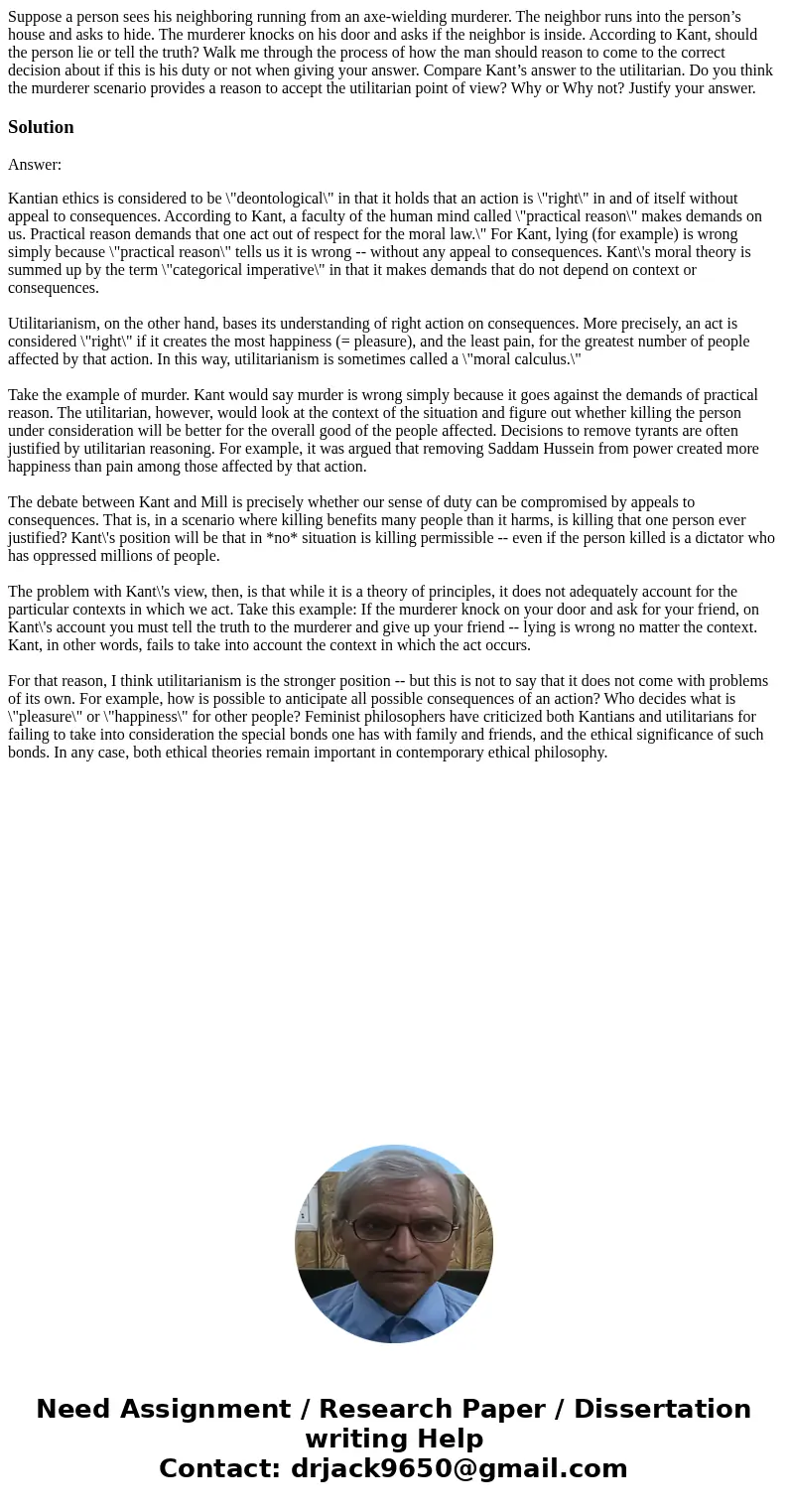Suppose a person sees his neighboring running from an axewie
Suppose a person sees his neighboring running from an axe-wielding murderer. The neighbor runs into the person’s house and asks to hide. The murderer knocks on his door and asks if the neighbor is inside. According to Kant, should the person lie or tell the truth? Walk me through the process of how the man should reason to come to the correct decision about if this is his duty or not when giving your answer. Compare Kant’s answer to the utilitarian. Do you think the murderer scenario provides a reason to accept the utilitarian point of view? Why or Why not? Justify your answer.
Solution
Answer:
Kantian ethics is considered to be \"deontological\" in that it holds that an action is \"right\" in and of itself without appeal to consequences. According to Kant, a faculty of the human mind called \"practical reason\" makes demands on us. Practical reason demands that one act out of respect for the moral law.\" For Kant, lying (for example) is wrong simply because \"practical reason\" tells us it is wrong -- without any appeal to consequences. Kant\'s moral theory is summed up by the term \"categorical imperative\" in that it makes demands that do not depend on context or consequences.
Utilitarianism, on the other hand, bases its understanding of right action on consequences. More precisely, an act is considered \"right\" if it creates the most happiness (= pleasure), and the least pain, for the greatest number of people affected by that action. In this way, utilitarianism is sometimes called a \"moral calculus.\"
Take the example of murder. Kant would say murder is wrong simply because it goes against the demands of practical reason. The utilitarian, however, would look at the context of the situation and figure out whether killing the person under consideration will be better for the overall good of the people affected. Decisions to remove tyrants are often justified by utilitarian reasoning. For example, it was argued that removing Saddam Hussein from power created more happiness than pain among those affected by that action.
The debate between Kant and Mill is precisely whether our sense of duty can be compromised by appeals to consequences. That is, in a scenario where killing benefits many people than it harms, is killing that one person ever justified? Kant\'s position will be that in *no* situation is killing permissible -- even if the person killed is a dictator who has oppressed millions of people.
The problem with Kant\'s view, then, is that while it is a theory of principles, it does not adequately account for the particular contexts in which we act. Take this example: If the murderer knock on your door and ask for your friend, on Kant\'s account you must tell the truth to the murderer and give up your friend -- lying is wrong no matter the context. Kant, in other words, fails to take into account the context in which the act occurs.
For that reason, I think utilitarianism is the stronger position -- but this is not to say that it does not come with problems of its own. For example, how is possible to anticipate all possible consequences of an action? Who decides what is \"pleasure\" or \"happiness\" for other people? Feminist philosophers have criticized both Kantians and utilitarians for failing to take into consideration the special bonds one has with family and friends, and the ethical significance of such bonds. In any case, both ethical theories remain important in contemporary ethical philosophy.

 Homework Sourse
Homework Sourse